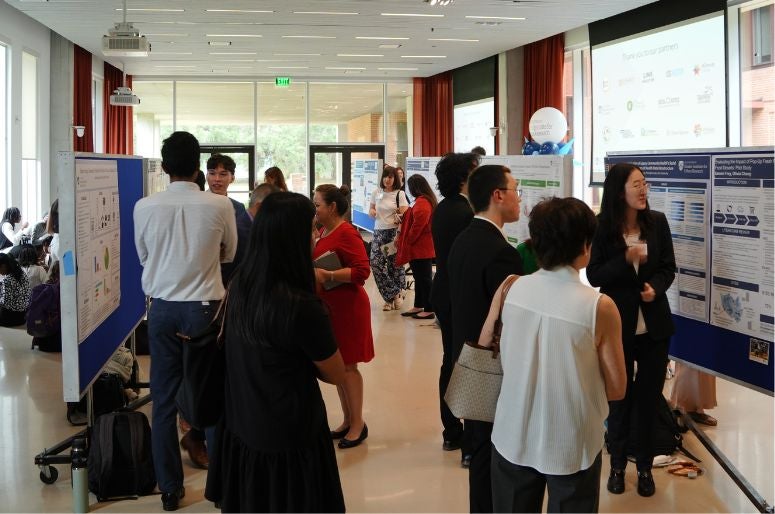Community partners across Houston say they’re seeing meaningful results from a unique research partnership with Rice University students — one that’s changing both neighborhoods and career paths.
Through the Community Bridges program at the Kinder Institute for Urban Research, undergraduates are paired with local nonprofit organizations to conduct research-based projects tied to urban inequality, housing, health and social justice. Students spend a full academic year engaging in immersive fieldwork while earning course credit in urban sociology.
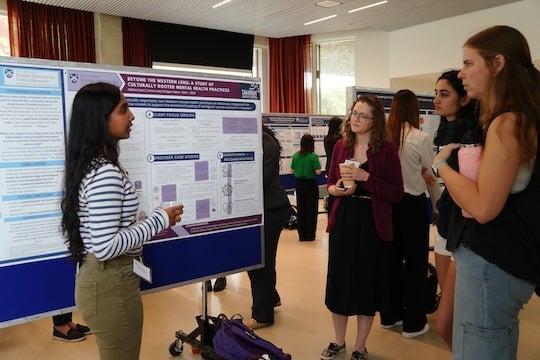
At the recent spring celebration, guests moved from poster to poster as over 30 students — the largest cohort in the program’s history — shared findings and reflections from the projects they’d completed alongside 28 community organizations.
“This was an experience where I got a real understanding of what I want to do with my life,” said sophomore Sammi Frey, who worked with Second Servings of Houston to evaluate the impact of pop-up produce markets in local food deserts. “It gave me the chance to see what it means to serve a community — not just in theory but in person.”
Barbara Bronstein, founder and president of Second Servings, said Frey and her project partner, junior Olivia Chang, brought not only energy but valuable insight.
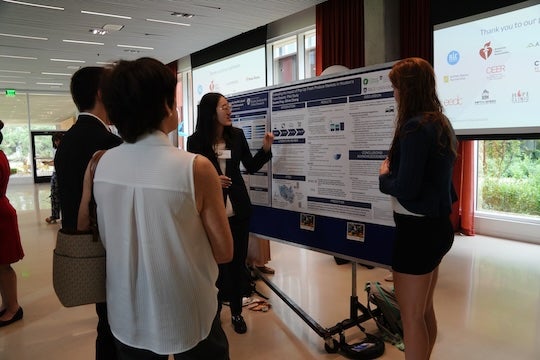
“Their work will really help us understand more about the impact we’re having in the community,” Bronstein said. “It’s useful for grants, future research and, most of all, for making sure the people we serve are getting what they need.”
Junior Hai-Van Hoang partnered with Legacy Community Health to assess how well the clinic’s Health Advocates program collects and responds to patients’ nonmedical needs such as food, transportation and housing.
“We were really looking for something to evaluate where we’re at today,” said William Lyons, senior manager of programs at Legacy Community Health. “Hai-Van helped us identify where patients felt more or less supported and showed us how clearer communication could improve outcomes.”
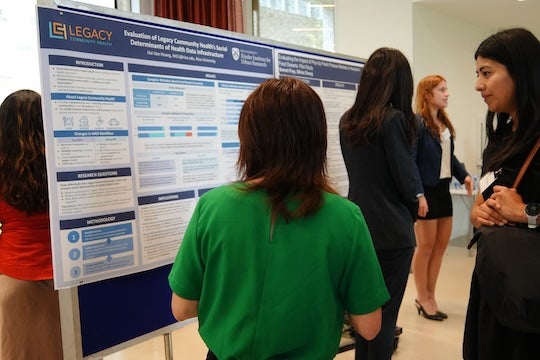
The data Hoang collected led to real change. “We reduced the time between clinician referral and patient contact from a month to a week,” she said. “That’s something you can see and feel and that matters.”
For sophomore Sanjna Ayyar, the project with LISC Houston focused on integrating green infrastructure into affordable housing. Her research, which examined sustainability incentives and retrofitting strategies, is already shaping new training modules for local developers.
“She broke it down in such a way that people could truly understand,” said Ricky Bradshaw III, senior program officer at LISC. “She gave us a road map we can use to train developers, advocate for funding and even rethink how we offer loans.”
Ayyar said the experience helped her discover a potential career path. “I came in passionate about environmental justice, but this gave me a way to turn that passion into action,” she said. “It’s research that’s being implemented, not just archived.”
Many of the program’s nonprofit partners return year after year, and organizations like LISC say the collaboration provides real value — both for their missions and for the students.
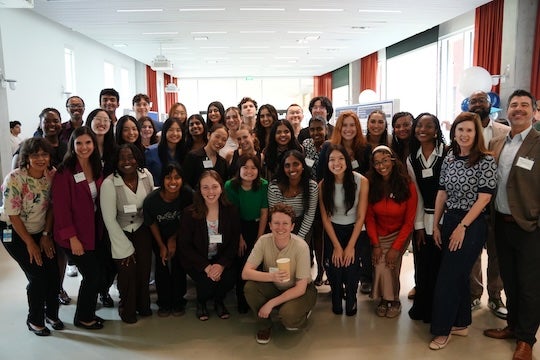
“It’s a win-win,” Bradshaw said. “Our organization is now adding a sustainability module to our emerging developer curriculum, directly informed by Sanjna’s research. It helps developers understand the green building strategies available, the financing tools that exist, and it helps destigmatize the idea that sustainable development is out of reach. These students are bringing real solutions to the table.”
The program’s hands-on learning experience complements the Kinder Institute’s research partnership approach to addressing Houston’s challenges.
“Community Bridges continues to expand its reach and reaffirm Rice’s commitment to Houston and to an excellent student experience,” said Rose Rougeau, executive director of the Kinder Institute’s external affairs division.
The 2024-2025 Community Bridges program was supported by CenterPoint Energy Foundation.

